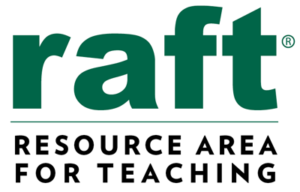Spoon Scales
These balances are simple to make and sensitive enough to be used for a variety of investigations using standard or non-standard measurement units.
Standards
Idea Sheets are cross-referenced to subjects listed in the Common Core, Next Generation Science Standards, and California Content Standards.
Science and Engineering Practices: 1. Asking Questions and Defining Problems 2. Developing and Using Models 3. Planning and Carrying Out Investigations 4. Analyzing and Interpreting Data 5. Using Mathematics and Computational Thinking 6. Constructing Explanations and Designing Solutions 7. Engaging in Argument from Evidence 8. Obtaining, Evaluating, and Communicating Information ||Next Generation Science Standards||Grade 2||Science and Engineering Practices|||Science and Engineering Practices: 1. Asking Questions and Defining Problems 2. Developing and Using Models 3. Planning and Carrying Out Investigations 4. Analyzing and Interpreting Data 5. Using Mathematics and Computational Thinking 6. Constructing Explanations and Designing Solutions 7. Engaging in Argument from Evidence 8. Obtaining, Evaluating, and Communicating Information ||Next Generation Science Standards||Grade 3||Science and Engineering Practices|||Science and Engineering Practices: 1. Asking Questions and Defining Problems 2. Developing and Using Models 3. Planning and Carrying Out Investigations 4. Analyzing and Interpreting Data 5. Using Mathematics and Computational Thinking 6. Constructing Explanations and Designing Solutions 7. Engaging in Argument from Evidence 8. Obtaining, Evaluating, and Communicating Information ||Next Generation Science Standards||Grade 4||Science and Engineering Practices|||Science and Engineering Practices: 1. Asking Questions and Defining Problems 2. Developing and Using Models 3. Planning and Carrying Out Investigations 4. Analyzing and Interpreting Data 5. Using Mathematics and Computational Thinking 6. Constructing Explanations and Designing Solutions 7. Engaging in Argument from Evidence 8. Obtaining, Evaluating, and Communicating Information ||Next Generation Science Standards||Grade 5||Science and Engineering Practices|||Science and Engineering Practices: 1. Asking Questions and Defining Problems 2. Developing and Using Models 3. Planning and Carrying Out Investigations 4. Analyzing and Interpreting Data 5. Using Mathematics and Computational Thinking 6. Constructing Explanations and Designing Solutions 7. Engaging in Argument from Evidence 8. Obtaining, Evaluating, and Communicating Information ||Next Generation Science Standards||Middle School||Science and Engineering Practices|||Science and Engineering Practices: 1. Asking Questions and Defining Problems 2. Developing and Using Models 3. Planning and Carrying Out Investigations 4. Analyzing and Interpreting Data 5. Using Mathematics and Computational Thinking 6. Constructing Explanations and Designing Solutions 7. Engaging in Argument from Evidence 8. Obtaining, Evaluating, and Communicating Information ||Next Generation Science Standards||High School||Science and Engineering Practices
4.b. Measure length, weight, temperature, and liquid volume with appropriate tools and express measurements in standard and non-standard units.||CA Science||Grade 2||04. Investigation and Experimentation||4. Scientific progress is made by asking meaningful questions and conducting careful investigations. As a basis for understanding this concept and addressing the content in the other three strands, students should develop their own questions and perform investigations. Students will:|||5.c. Use numerical data in describing and comparing objects, events and measurements.||CA Science||Grade 3||04. Investigation and Experimentation||5. Scientific progress is made by asking meaningful questions & conducting careful investigations. As a basis for understanding this concept, and to address the content of the other strands, students will develop questions and perform investigations.|||6.b. Measure and estimate weight, length, or volume of objects.||CA Science||Grade 4||04. Investigation and Experimentation||6. Scientific progress is made by asking meaningful questions & conducting careful investigations. As a basis for understanding this concept, and to address the content of the other strands, students will develop questions & perform investigations.|||f. Select appropriate tools (e.g., thermometers, meter sticks, balances, and graduated cylinders) and make quantitative observations.||CA Science||Grade 5||04. Investigation and Experimentation||6. Scientific progress is made by asking meaningful questions and conducting careful investigations. As a basis for understanding this concept and addressing the content in the other three strands, students should develop their own questions and perform investigations. Student will:|||7.b. Select and use appropriate tools and technology (including calculators, computers, balances, spring scales, microscopes, and binoculars) to perform tests, collect data, and display data.||CA Science||Grade 6||07. Investigation and Experimentation||7. Scientific progress is made by asking meaningful questions and conducting careful investigations. As a basis for understanding this concept and addressing the content in the other three strands, students should develop their own questions and perform investigations. Students will: |||7.a. Select and use appropriate tools and technology (including calculators, computers, balances, spring scales, microscopes, and binoculars) to perform tests, collect data, and display data.||CA Science||Grade 7||07. Investigation and Experimentation||7. Scientific progress is made by asking meaningful questions & conducting careful investigations. As a basis for understanding this concept, and to address the content of the other strands, students will develop questions & perform investigations.
- Physical Science
- Grades K-2
- Grades 3-5
- Grades 6-8
- Science
